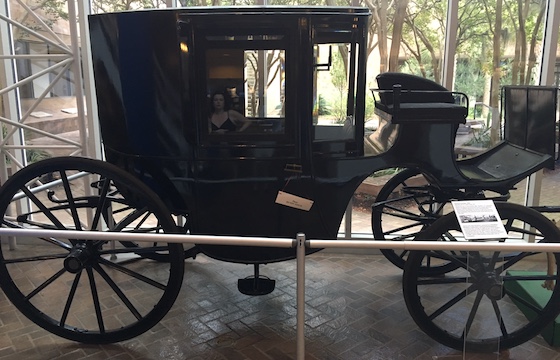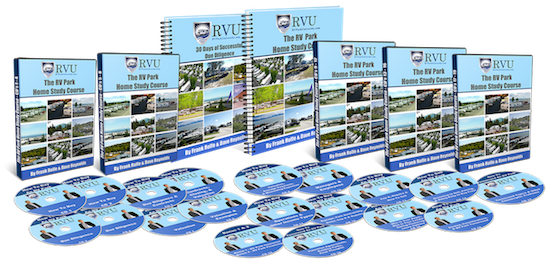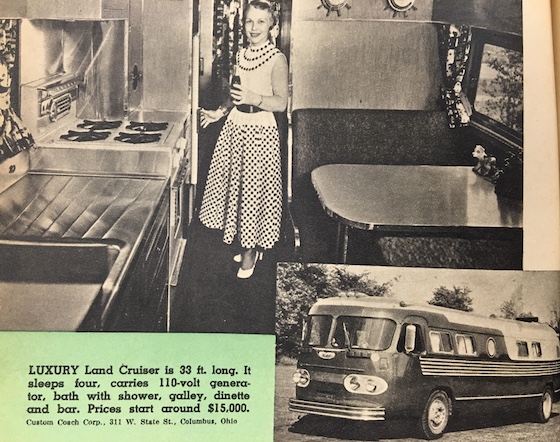In the Civil War, the submarine was developed. This is an artist’s rendering of a Confederate submarine sinking a Union ship. It never even knew what was coming. It was just sitting in the harbor and suddenly there was an explosion and it sank. What are some of the hidden deal killers that can destroy your RV park as an investment, and how do you find these out ahead of time?
No permit
All RV parks must have valid city, county and state operating permits. Without this one item, an RV park is just a piece of farmland with some utilities on it. Just because an RV park has been there for decades does not mean that it is legal – only undiscovered or untested by officials. There are RV parks out there that have no permits whatsoever, and the city has failed to shut them down only because they like the mom & pop builder of the RV park and are waiting to pull the rug out from under the next owner that they don’t know or care about. You can find out the permit situation on any RV park by requesting a Certificate of Zoning from the city, county or state (whichever is applicable on that property). This document tells you that the property is either legal, legal non-conforming (which means grandfathered) or illegal. If it’s illegal, then the deal is dead.
Permit for fewer lots than what’s on the ground
Also in the Certificate of Zoning will be the number of permitted lots the RV park is allowed to have. And it needs to match up exactly to what you are buying. If the Certificate of Zoning says 100 RV lots and the seller says 120, then that’s a huge deal killer unless they are willing to reduce the price proportionally. In some cases, the seller can go to the city and get the permit corrected, but typically not.
Failing water or sewer system
All RV parks must provide safe water to drink and environmentally correct disposal of sewage. You cannot buy an RV park that is failing to meet this mandate. The RV park’s water/sewer system should be completely analyzed and any problems should be completely corrected prior to purchase. Private wells and private sewer systems require especially tough due diligence.
Failing power system
Electricity is mandatory for RV customers. It lights their lights, runs there air conditioning, powers their television – all the things that we all take for granted. Make sure that the RV park’s power system is 100% to code and in full working order. Anything less is a deal killer.
Amenities that are not up to code
Many commercial pools today fail to meet modern code. They were built decades ago, and many mom and pop owners are unaware that the pool they are so proud of is completely illegal based on modern requirements. Make sure that any amenity has been inspected and improved by code enforcement and the health department.
Future problems with the market
Is the market where the park is located on the upswing or a downward spiral? In real estate, you are always buying location, location, location, so you can’t scrimp on your diligence that you are buying into a winning market and not a loser. Check current stats but also examine future trends. Talk to the local chamber of commerce and become an expert on that part of America.
Road issues
We’re not talking about how the roads in the park appear. That’s not a hidden deal killer. What we’re talking about are future road projects that might impact your access or even place on the main road. We looked at a park recently that was going to be cut in two by a future highway project – wiping out 50% of the spaces. You can find this type of information from the state highway departments, who tracks, of public record, every future highway project reaching up to a decade into the future.
Failed Phase I environmental
Back when the U.S. became more environmentally conscious in the 1970s, the government brought out a system to insulate property buyers against hidden pollution in their property. Called a Phase I Environmental Report, this important document is written by a licensed and insured environmental engineer, and gives you the green light to go forward. At the same time, a failed environmental report means that the property is polluted and you should never buy such a property.
Survey problems
Most RV parks are located right where they are supposed to be. But some are not. It is not uncommon to find that a portion of the RV park is not located on the correct property. We once saw a park that was actually missing one-third of its total land mass on to a neighboring farm – including its main entrance road. Be sure that you are buying the RV park you think you’re buying, and that it’s wholly contained on that parcel.
Title problems
Do mom & pop really own that RV park? You’ll find out when the title to the property is examined by the title company. We’ve seen it all. Properties that are not owned by the seller alone, but multiple heirs who never agreed to sell. Land that has never been properly surveyed in the past, and handed down generation after generation with simply “the land from the big tree to Aunt Mabel’s fence”. You cannot close on any RV park unless you have good title. No exceptions.
Conclusion
There is nothing more frustrating than finding that a RV park you were buying suddenly can’t be bought due to a hidden defect. But the important thing to remember is that you want to find these defects out before closing instead of after.






